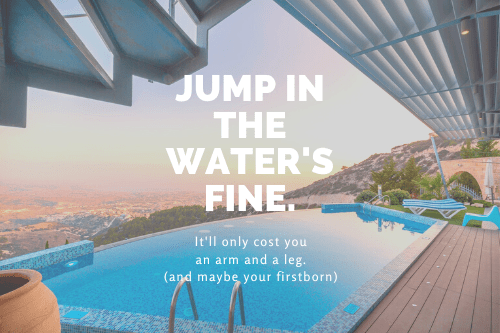
YouTube / iTunes / Spotify / Radio Public / Pocket Casts / Google Podcasts / Breaker / Overcast
Listen to ArtisanEnglish.jp posts & lesson intros here.
Idiom: Cost an arm and a leg
Have you ever noticed how the simple things in life are free, but the things you really want, what you feel would make you happy, cost an arm and a leg?
Why the heck is that? Why do humans lust after the most expensive things we can think of?
To put it in a nutshell, something which costs an arm and a leg is costly.
Common sense tells us that we should not live beyond our means.
Most of us, however, suffer from The Jones Effect.
We always want what others have and are never satisfied with what we have now.
Voltaire said common sense is not so common, which leads to one of life’s puzzles.
Why is it that the more expensive something is, the more people desire it? People are quite willing to pay an arm and a leg for a new home instead of purchasing a preowned one.
Many people, myself included, prefer to pay a premium for that new car smell instead of buying a second-hand car.
For a while, after the Home Mortgage Crisis, or Lehman Shock if you live in Japan, people were content to take staycations instead of travelling long distances.
By the way, before I forget, the word staycation was coined by a Canadian comedian named Brett Butt.
Leave it to a Canadian to devise a name for something very sensible and economical.
Now, the crisis and resulting recession are more than ten years in the rear-view mirror.
People are again beginning to sign on the dotted line for mortgages which will cost them an arm and a leg.
Summer is coming, and it would be nice to have a swimming pool, wouldn’t it?
Maybe I should talk to my bank manager.
What did that Voltaire guy say again?
Flesch-Kincaid Readability Test
This post is understandable by someone with at least a 7th-grade education (age 12).
On the Flesch-Kincaid reading-ease test, this post scores 76.
The easier a passage is to read, the higher the score on a scale of 0 – 100.

